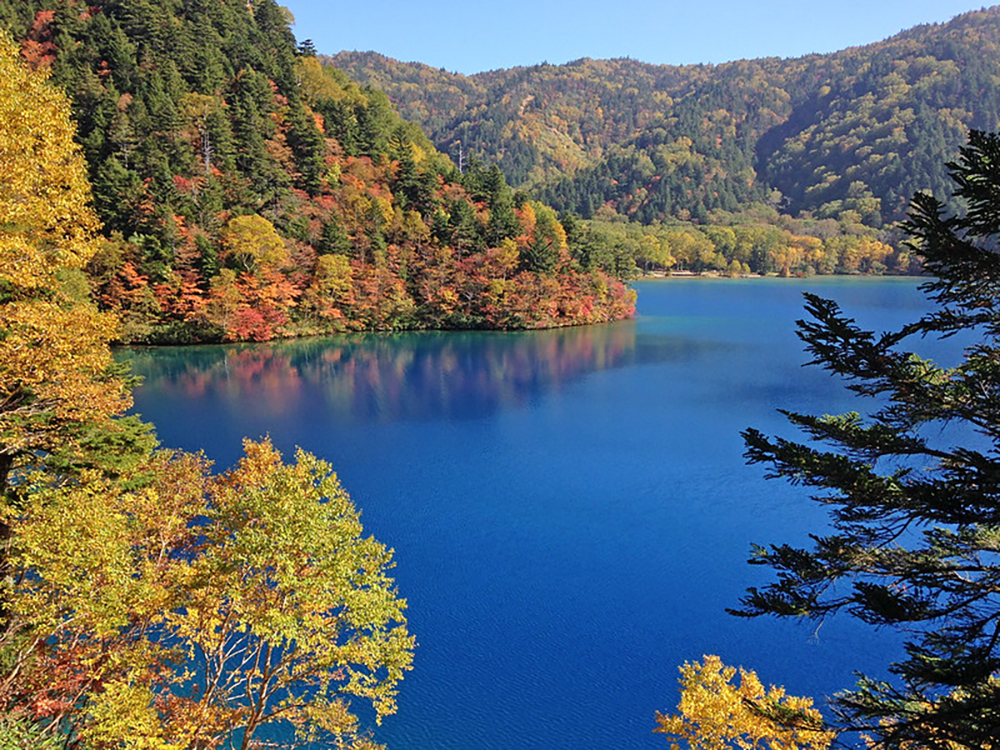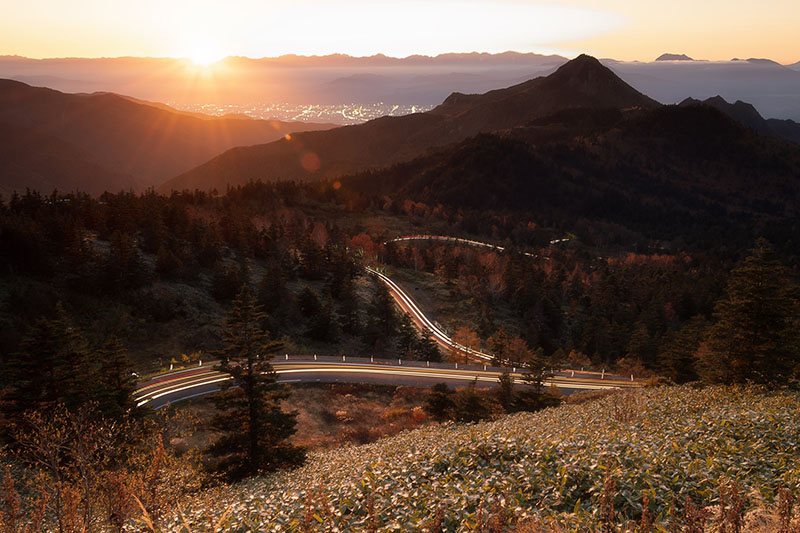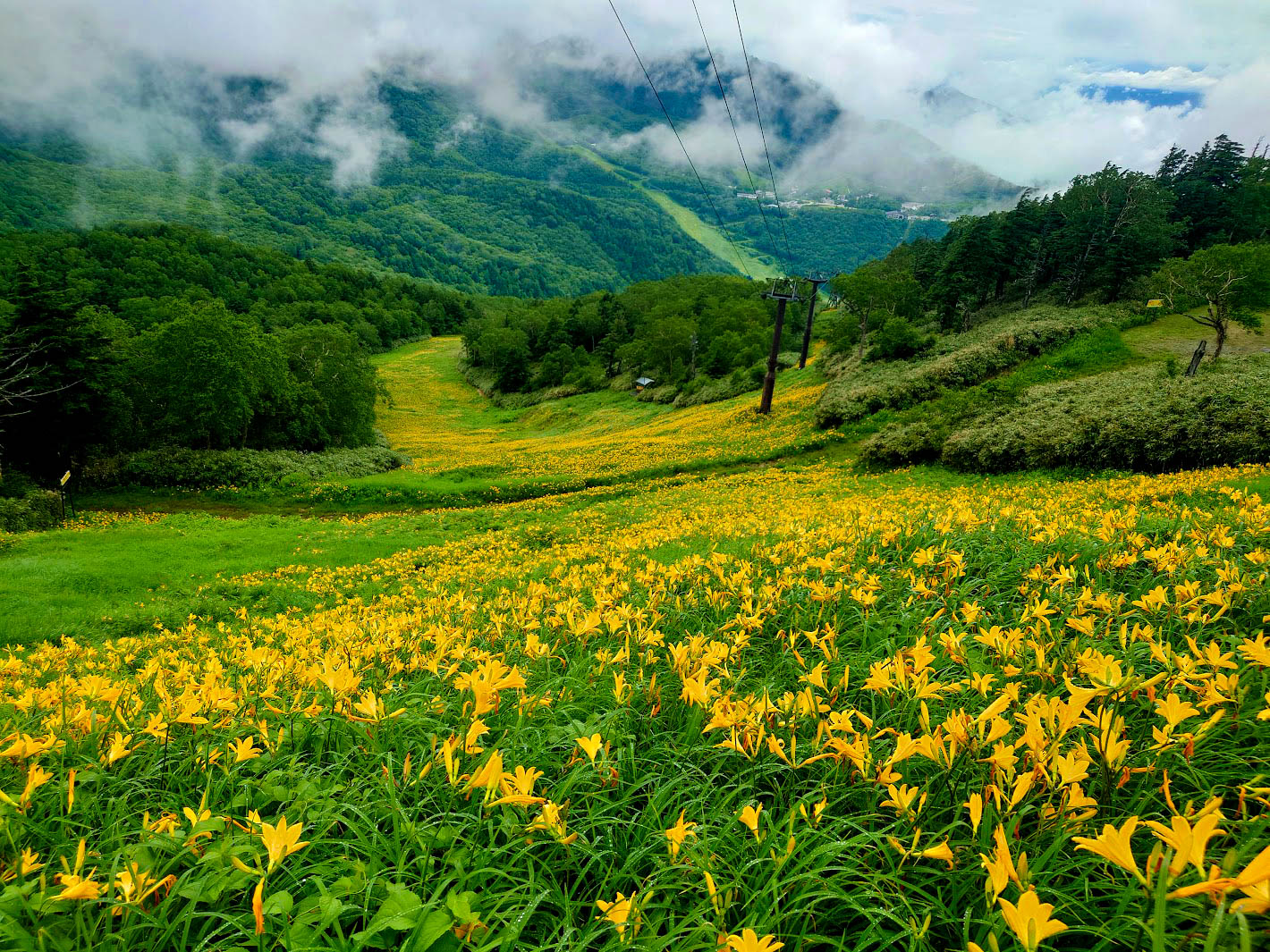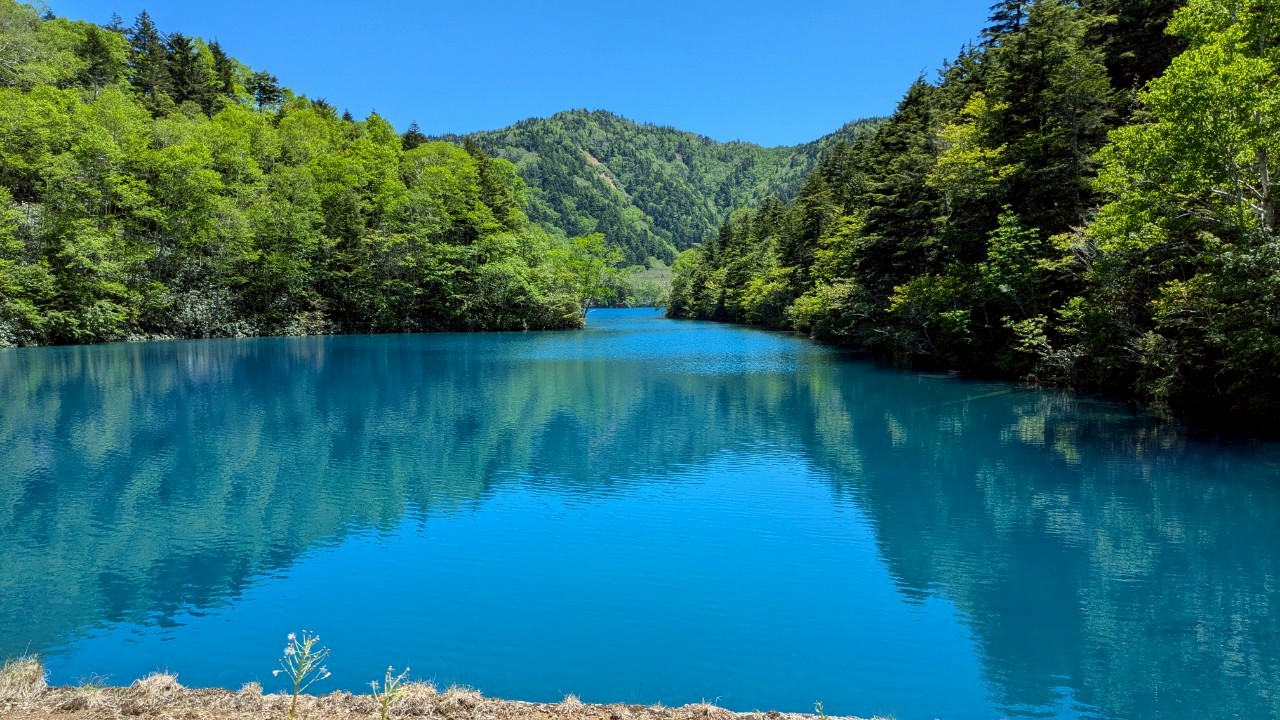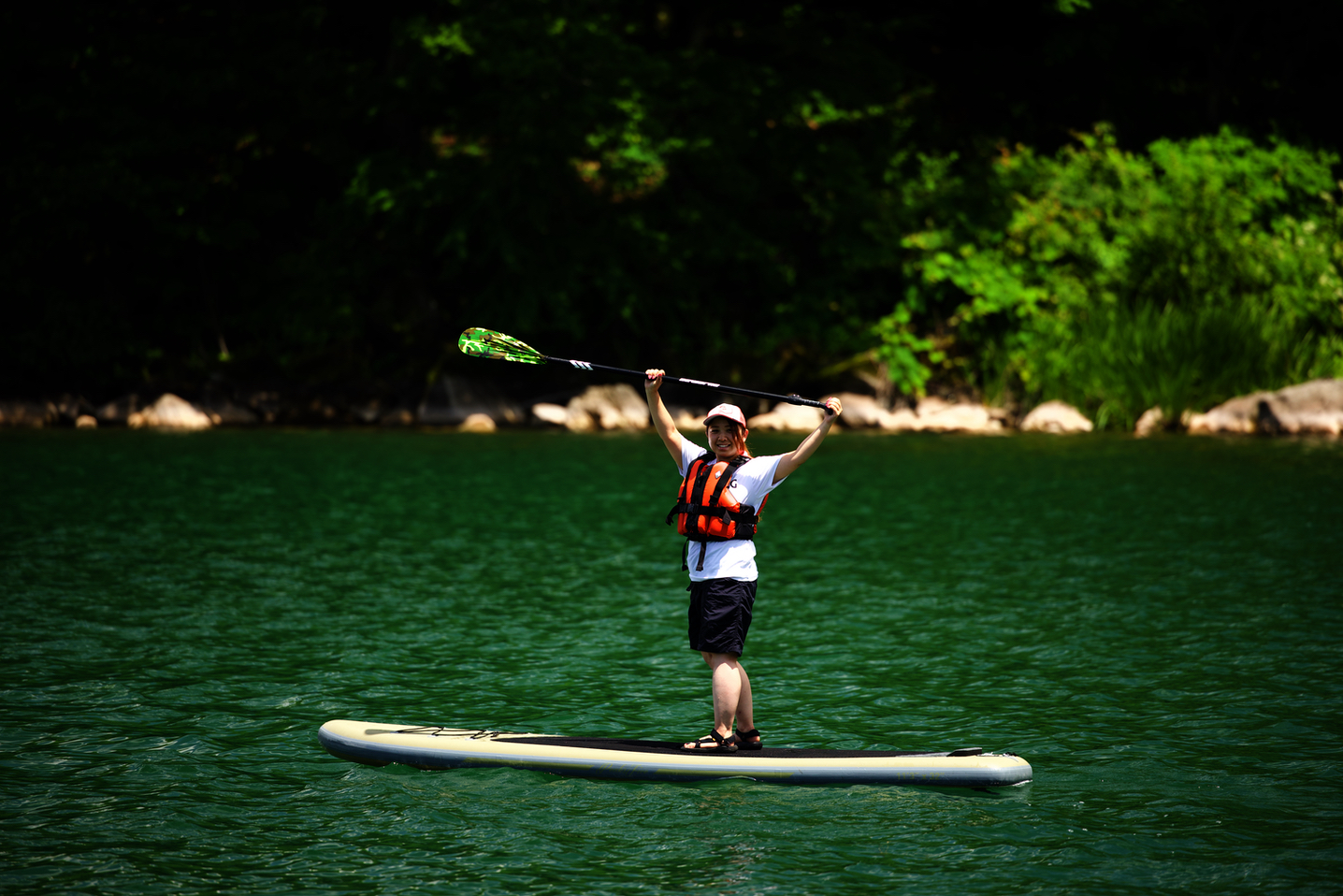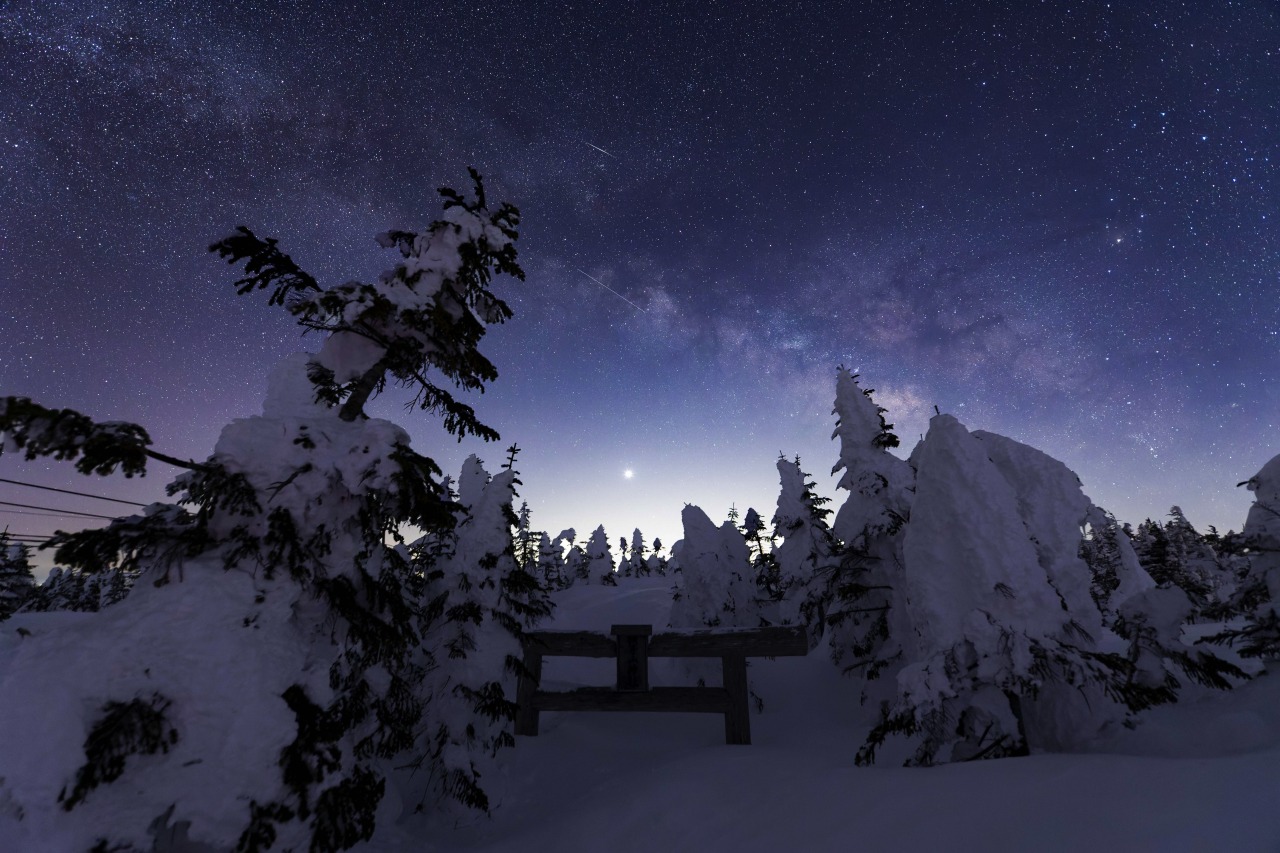Planning a trip to Shiga Kogen? This page covers everything you need to know before you go!
Major cities such as Tokyo, Nagoya, and Kyoto offer all the convenience, entertainment, and shopping you could ever want. They represent the fast-paced and modern side of Japan: exciting, energetic, and vibrant. In contrast, Shiga Kogen is completely different.
Here, you won’t find the usual trappings of modern life, such as shopping centres or leisure facilities. Instead, you’ll discover something far rarer: breathtaking landscapes that can’t be found anywhere else.
Although it may not be the most convenient place, this is exactly what makes it truly restorative — a genuine escape from the demands of everyday life.
To be clear, it’s the modern conveniences that are lacking. What Shiga Kogen offers is something far more valuable: the natural beauty that locals and visitors alike have preserved for generations.
Much of the region is part of a national park, designated as a UNESCO Man and the Biosphere (MAB) Reserve. Take your time, slow down, and immerse yourself in the vast and peaceful nature that defines Shiga Kogen.
So, why not take a break from the noise and rush of the city, and enjoy the beauty of having “nothing” in the very best sense of the word?
Overview
Shiga Kogen: A Natural Treasure within a National Park
Nestled in the heart of Joshin’etsu Kogen National Park, Shiga Kogen is more than just a beautiful place to visit — It’s a place that helps preserve a natural environment of global significance.
It’s been recognised as a UNESCO Man and the Biosphere (MAB) Reserve, and is one of only ten places in Japan to have earned that title.
This highland area is home to a wide variety of ecosystems, striking scenery, and a world where humans and nature coexist in harmony.
From ancient forests and peaceful upland wetlands to still ponds, snow-covered peaks, and plenty of wildlife, the landscape changes with the seasons and offers something new each time you come.
Of course, with beauty comes responsibility.
This delicate environment is the result of generations of balance between people and nature. Looking after it depends not just on the locals, but also on those who visit.
Whether you’re walking the trails, soaking in a hot spring, or simply enjoying the mountain air, we hope you’ll experience Shiga Kogen with care, curiosity, and a sense of wonder.
Shiga Kogen: Home to Diverse Wildlife and Pristine Nature
Shiga Kogen is home to a wide range of wildlife, including Japanese hares, red foxes, macaques, serows, and even Asiatic black bears. If you’re very lucky, you might just spot an ermine – a rare treat, even for the locals!
In these quiet forests, birds sing cheerful tunes and insects gather around delicate mountain flowers. Every creature here plays its part in a vibrant, living landscape – all made possible by the beautiful natural surroundings.
To help protect these animals and their delicate habitat, please keep the following in mind:
- Do not feed or touch wild animals. Avoid making loud noises if you see them.
- Be sure to keep your distance while taking pictures of animals.
- Do not pick plants.
- Stay on marked hiking trails (plants here are very delicate).
- Be sure to take all your rubbish with you.
- Use a bear bell and avoid hiking alone whenever feasible.
- Drive carefully — animals may cross the road unexpectedly.
- Strict rules apply to stream fishing. Please inquire in advance.
Thank you for your consideration… your cooperation helps preserve this place as a safe haven for all wild flora and fauna!
Access
Public Transportation
There are several ways to get to Shiga Kogen but if you’re using public transportation, the express bus operated by Nagaden Bus from Nagano Station is the fastest and most convenient option.
Local buses also operate within Shiga Kogen, so please feel free to use them during your visit. For timetables and details of express buses from Nagano Station and local routes within Shiga Kogen, please check the link below.
Local buses within Shiga Kogen do not run frequently, and there are no stationed taxi services or Uber available. Please make sure to check the bus timetable in advance and plan your trip accordingly.
Carparks
Renting a car and driving yourself can also be a fun way to explore, but please be sure to drive safely! In winter, snow tyres are a must. For 2WD vehicles, chains are also required.
Parking lots and spaces in Shiga Kogen is free of charge. However, please note that some parking areas are reserved exclusively for guests staying at nearby accommodations. Make sure to check the map before you park.
As these are free public parking lots and spaces, the Shiga Kogen Tourism Association and related operators are not responsible for any theft, damage, or accidents. Please park at your own risk.
If your vehicle becomes immobile due to mechanical issues, please contact JAF (Japan Automobile Federation) or your rental car provider directly.
Seasons and Weather
The seasons in Shiga Kogen are quite different from those in the city
In spring, nature awakens gradually, and the entire highland is filled with the breath of life. Then come the refreshing breezes of early summer, followed by vivid blue skies stretching across midsummer days. The dazzling colours of autumn foliage arrive next, gradually giving way to the crisp air of winter, which brings with it the excitement and energy of the ski season.
Each season offers a unique kind of beauty and calm — something you won’t find in the big cities. Click each to see the details!
April – Late Snow and Spring Skiing
In April, while cherry blossoms bloom across Japan, snow still covers the high slopes of Shiga Kogen. Some of its 18 interconnected ski areas remain open for spring skiing until early May. By late April, the ‘Shiga-Kusatsu Highland Route‘ reopens, offering a scenic drive through snow corridors over 5 metres high.
🌡️ Average temperature: around 10°C / 50°F
🌞 Average Sunrise and Sunset Times: ↑ 05:11 / ↓ 18:20
May – Golden Week & the First Signs of Spring
May brings Golden Week, a series of national holidays in Japan. In Shiga Kogen, this marks the start of spring. As the snow melts, new life rapidly appears across the landscape.
🌡️ Average temperature: around 15°C / 59°F
🌞 Average Sunrise and Sunset Times: ↑ 04:38 / ↓ 18:46
June – Hiking Season and Mountain Harvests
Lush green forests signal the arrival of hiking season. June is also the wettest month of the year, nourishing mountain vegetables and fresh bamboo shoots, which are at their best during this time.
🌡️ Average temperature: around 18°C / 64°F
🌞 Average Sunrise and Sunset Times: ↑ 04:27 / ↓ 19:05
June–August – Alpine Blooms and Fireflies
Alpine flowers are in full bloom, creating vibrant trails. From late July to mid-August, Genji-botaru fireflies illuminate the nights in the Ishinoyu area.
Be mindful of sudden mountain weather changes — it’s best to start your hike early and finish by 4 pm.
With an elevation of more than 1,300 metres, Shiga Kogen offers a refreshing escape from the heat, being 5-10°C cooler than the urban areas.
🌡️ Average temperature: around 25°C / 77°F
🌞 Average Sunrise and Sunset Times: ↑ 04:40 / ↓ 19:03 (July) ↑ 05:04 / ↓ 18:53 (August)
September – Dry Air and Starry Skies
As humidity drops, the air becomes crisp and the night skies clearer. Stargazing and hiking in this refreshing climate is a real treat.
If you’re planning a hike in the cool climate, it’s best to finish by 3 pm, as daylight hours begin to shorten and temperatures can drop quickly in the late afternoon.
🌡️ Average temperature: around 20°C / 68°F
🌞 Average Sunrise and Sunset Times: ↑ 05:28 / ↓ 17:53
October – Autumn Colours Unfolding from the Peaks
Autumn foliage begins at the peaks and cascades downward in layers of red, orange, and gold. As the air cools, be sure to dress warmly. Furthermore, the chances of encountering a sea of clouds rise, presenting an opportunity to witness a truly enchanting vista!
Around mid-October, areas around 2,000 meters in Shiga Kogen often see light snowfall. If you’re driving to higher elevations, be aware of possible icy roads and plan accordingly.
🌡️ Average temperature: around 15°C / 59°F
🌞 Average Sunrise and Sunset Times: ↑ 05:54 / ↓ 17:09
November – First Snowfall of the Season
By mid-November the first snowfall arrives and the temperature drops significantly causing small ponds in Shiga Kogen to begin freezing. A calm winter atmosphere sets in with some ski areas opening later in the month. As the area quiets down many hotels and restaurants take a short break making it the calmest time of the year.
🌡️ Average temperature: around 7°C / 45°F
🌞 Average Sunrise and Sunset Times: ↑ 06:24 / ↓ 16:37
December – The Season Begins
As December progresses, the snowfall increases day by day and the ski areas gradually begin to open. By Christmas, Shiga Kogen transforms into a full-fledged winter wonderland. The high season begins and runs through late March.
Due to recent climate changes, the timing and amount of snowfall can vary. Ski areas open based on snow conditions, so it’s especially important to check their opening status during this time.
🌡️ Average temperature: around -5°C / 23°F
🌞 Average Sunrise and Sunset Times: ↑ 06:50 / ↓ 16:32
January – Peak Powder Season
January and February offer Japan’s finest powder snow. Shiga Kogen is bustling with snow lovers from around the world.
🌡️ Average temperature: around -8°C / 18°F
🌞 Average Sunrise and Sunset Times: ↑ 06:55 / ↓ 16:54
February – Deep Winter and Snow Monsters
February is the coldest month. At the summits of Mt. Yokote and Mt. Yakebitai, trees transform into “snow monsters” covered in ice and frost. The silence and beauty of this snowy world are unforgettable.
Please note that snow monsters are a natural phenomenon and may not be visible depending on weather conditions, such as temperature.
🌡️ Average temperature: around -10°C / 14°F
🌞 Average Sunrise and Sunset Times: ↑ 06:33 / ↓ 17:25
March – Ski Season’s Gentle Farewell
At this time of year, you can feel the signs of spring but there’s still a significant temperature difference and the weather can change quickly. Weekdays are much quieter, offering a true paradise for skiers. At the high elevations of Shiga Kogen, you can still enjoy excellent snow.
🌡️ Average temperature: around 0°C / 32°F
🌞 Average Sunrise and Sunset Times: ↑ 05:55 / ↓ 17:52
What to Wear/Bring
Since you’ll be spending time in nature, it’s best to wear clothes you don’t mind getting a little dirty. The key to outdoor clothing is layering. For seasons other than winter, flexible and stretchy trousers are ideal. Choosing breathable and quick-drying fabrics will help keep you comfortable even when you sweat. Winters can be colder than you might expect, so please come well-prepared. Click each to see the details!
From April to mid-May
While temperatures begin to rise in the cities and some days may even feel warm enough to break a sweat, Shiga Kogen remains quite chilly due to its high elevation. Warm clothing is essential. A down jacket may not be necessary, but we recommend dressing as warmly as possible.
From mid-May to early June
Although temperatures are gradually rising, a light jacket is still essential.
From June
As the rainy season begins, be sure to bring rain gear. For hikers a two-piece (jacket and trousers) rain set is especially useful.
From mid-July to late September
As temperatures rise, short sleeves are fine during the day but we recommend carrying a lightweight long-sleeved shirt to protect yourself from sunburn and insect bites.
At this high altitude the sun’s rays are much stronger than at lower elevations – don’t forget your sunglasses, a hat, and sunscreen.
From late September to late October
As temperatures gradually drop, the autumn foliage begins to move down the mountains. With the dry air, some days may feel quite chilly. We recommend wearing layers to adjust to the changing conditions.
From November to March
Once the snow begins to fall, visiting in light clothing is no longer advisable. In particular, cotton jeans are not recommended for the winter season, as they absorb moisture, become heavy, and dry slowly. Be sure to prepare not only a proper winter jacket, but also warm accessories such as a thick hat, gloves, and socks. For snowy conditions, waterproof and thermal boots are highly recommended.
Things You Can Do on Your Own
Scenic Spot Hunting
Some of the gondolas and chairlifts in Shiga Kogen operate during the summer, allowing visitors to enjoy spectacular views. On clear days, you can see far into the distance and experience a sense of openness that’s hard to find in the city.
At Mt. Higashidate, you’ll find a café, a restaurant, an alpine plants garden, a small shrine with a distinctive red torii, and a scenic viewing terrace.
Mt. Yokoteyama is home to Japan’s highest-altitude bakery, as well as the country’s first crumpet speciality shop.
At Mt. Yakebitai, a torii and a small shrine quietly stand in the pond, nestled in the tranquil forest at the mountaintop.
Mt. Higashidate and Mt. Yokoteyama are easy to reach via gondola, sky-lator, and lift, while Mt. Yakebitai requires a hike to reach the summit. For more details, please click the button below.
Sky Paradise: Higashitateyama Alpine Plants Garden
At nearly 2,000 meters, the summit of Mt. Higashidate is home to the Higashitateyama Alpine Plants Garden, where you can see approximately 500 species of alpine plants.
The sight of the slopes covered in the vibrant orange of daylilies (Nikkō-kisuge) which bloom in mid-July is truly breathtaking.
Volcanic Blessings: Hot Springs in Shiga Kogen
Shiga Kogen, located in a volcanic region, is rich in natural hot springs.
♨ Kumanoyu Onsen – Steeped in history, perfect for a traditional experience
♨ Hotaru Onsen – Known for its unique milky white and pale green waters
♨ Hoppo Onsen – Named after the bubbling “hoppo-hoppo” sound of the spring
♨ Takamagahara Onsen – A hot spring that mixes sources of different temperatures, both low and high
♨ Kidoike Onsen – With volcanic activity, the colours of this rare hot spring shift between white and black
♨ Shigayama Onsen – A plentiful hot spring sourced 4 km away from the Makuiwa spring
♨ Makuiwa Onsen – Encircled by valleys, the hot spring resort offers a truly private retreat
These hot springs are part of hotel facilities, but some are open to non-staying guests as well.
Please note that they may occasionally be closed for private use or maintenance, so we recommend checking availability in advance for a smooth visit.
Heaven on Two Wheels: Cycling Through Shiga Kogen
The highest point on a national highway in Japan which located at an elevation of 2,172 meters is a sacred destination for cyclists from both Japan and abroad. The breathtaking and dynamic views from there will blow away any fatigue.
There’s no need to worry about getting lost — the route to Shiga Kogen is simple, just follow National Route 292.
Drive & Discover: Shiga Kogen at Your Own Pace
On a clear day, driving through Shiga Kogen is a fantastic way to enjoy the scenery at your own pace — no bus schedules, just beautiful views from scenic parking spots.
Just remember: in Japan, you drive on the left. If you’re used to right-side driving, stay alert. Wild animals may appear suddenly, and overtaking on narrow roads is dangerous.
A small mistake can ruin your trip. Drive safely and enjoy the ride!
Things You Can Do With Certified Guides
Guided Hiking Tours
Walking with an English-speaking guide from the Shiga Kogen Guide Association will greatly enhance your experience.
Our knowledgeable guides who know every corner of Shiga Kogen offer a wide range of tours from beginner-friendly to advanced.
There are also easy courses suitable for children, so the whole family can enjoy exploring together.
SUP (Stand Up Paddles)
In the heart of Shiga Kogen’s majestic nature, you can experience the serene beauty of Lake Biwa-ike Pond.
The view of the surrounding mountains reflected on the water’s surface offers a truly unique and unforgettable experience.
Restaurants and Shops
While winter in Shiga Kogen attracts many visitors who come to enjoy the perfect powder snow, the green season brings a calm and peaceful atmosphere.
It’s also a time when local restaurants and hotels staff get to enjoy a well-deserved break. Please note that each restaurant sets its own business hours and regular closing days, so we recommend contacting them directly before visiting.
You can find a list of restaurants and shops available in Shiga Kogeni in summer via the link below.
Public Toilets
There are several free public toilets available throughout Shiga Kogen, including near many of the walking trails. Be sure to check where the nearest one is before you start your hike!
Please note: Bringing household waste is strictly prohibited. In Japan, there is a shared cultural mindset to keep public spaces clean for everyone. We kindly ask that you use the facilities with respect for both the environment and those around you.
Important Note
The following public toilets will be closed during the winter season.
- Maruike Public Toilet
- Kidoike Public Toilet
- Shinshu Univ. Nature Education Garden Public Toilet
- Onuma-ike Public Toilet
- Shimizu Park Public Toilet
- Ichinose Public Toilet
- Mt. Iwasuge Toilet Booth
- Yokoteyama Drive-in
- Yokoteyama/Shibutoge Public Toilet
- Kutsu-uchi Meisui Park Public Toilet
Photo Gallery: Shiga Kogen Nice! Photo Contest
Rich in natural beauty, Shiga Kogen offers stunning scenery that changes with the seasons.
Shiga Kogen Nice! photo contest is held twice a year, once during the green season (from spring to autumn) and once during the winter season.
Anyone is welcome to participate, though prizes can only be shipped within Japan. You can view past winning entries at the link below, and experience breathtaking landscapes that are sure to move you.
Recommended Spots Around Shiga Kogen
Explore Beyond the Trails — Discover the Surrounding Gems of Shiga Kogen
While Shiga Kogen is known for its breathtaking landscapes, world-class hiking and skiing, the adventure doesn’t end there. The surrounding region is full of hidden gems waiting to be explored—charming hot spring towns, historic temples, scenic lakes, and cultural treasures that offer a deeper look into the heart of Nagano.
Whether you’re looking to relax in the healing hot springs of Kusatsu Onsen or Manza Onsen, take in the timeless beauty of Zenkoji Temple in Nagano City, or wander the art-filled streets of Obuse, there’s something nearby for every type of traveler.
We’ve put together a page with all the key information, so click the button below to check it out!
▼ Don’t forget to use the SHIGAKOGEN NAVIGATOR! ▼

There are several free public toilets available throughout Shiga Kogen, including near many of the walking trails. Be sure to check where the nearest one is before you start your hike!
Please note: Bringing household waste is strictly prohibited. In Japan, there is a shared cultural mindset to keep public spaces clean for everyone. We kindly ask that you use the facilities with respect for both the environment and those around you.
The following public toilets will be closed during the winter season.
- Maruike Public Toilet
- Kidoike Public Toilet
- Shinshu Univ. Nature Education Garden Public Toilet
- Onuma-ike Public Toilet
- Shimizu Park Public Toilet
- Ichinose Public Toilet
- Mt. Iwasuge Toilet Booth
- Yokoteyama Drive-in
- Yokoteyama/Shibutoge Public Toilet
- Kutsu-uchi Meisui Park Public Toilet
Photo Gallery: Shiga Kogen Nice! Photo Contest
Rich in natural beauty, Shiga Kogen offers stunning scenery that changes with the seasons.
Shiga Kogen Nice! photo contest is held twice a year, once during the green season (from spring to autumn) and once during the winter season.
Anyone is welcome to participate, though prizes can only be shipped within Japan. You can view past winning entries at the link below, and experience breathtaking landscapes that are sure to move you.
Recommended Spots Around Shiga Kogen
Explore Beyond the Trails — Discover the Surrounding Gems of Shiga Kogen
While Shiga Kogen is known for its breathtaking landscapes, world-class hiking and skiing, the adventure doesn’t end there. The surrounding region is full of hidden gems waiting to be explored—charming hot spring towns, historic temples, scenic lakes, and cultural treasures that offer a deeper look into the heart of Nagano.
Whether you’re looking to relax in the healing hot springs of Kusatsu Onsen or Manza Onsen, take in the timeless beauty of Zenkoji Temple in Nagano City, or wander the art-filled streets of Obuse, there’s something nearby for every type of traveler.
We’ve put together a page with all the key information, so click the button below to check it out!








